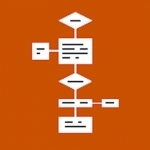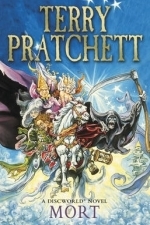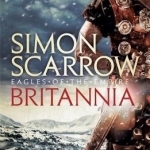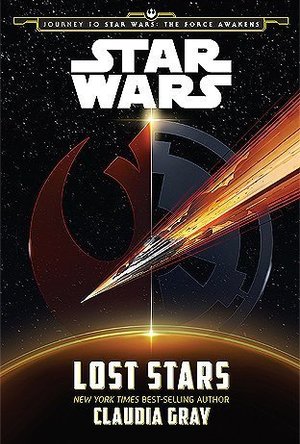An extremely early entry (#4) in [a:Terry Pratchett|1654|Terry Pratchett|https://images.gr-assets.com/authors/1235562205p2/1654.jpg]'s now-complete Discworld series (which spans 41 full length-novels), and the first in which the character of DEATH - HE WHO TALKS LIKE THIS - takes centre stage.
As this is an early novel, this is even before the introduction of DEATH's grand-daughter Susan Sto-Helit, even before the City Watch and (possibly) even before the introduction of The Witches - I say possibly as, although Granny Weatherwax has already put in an appearance in [b:Equal Rites|34507|Equal Rites (Discworld, #3; Witches #1)|Terry Pratchett|https://images.gr-assets.com/books/1407706800s/34507.jpg|583611] there's a strong argument to be made that she is not the 'real' Granny Weatherwax.
This one does, however, introduce us to DEATHs flesh-and-blood horse Binky ('He'd tried skeletal steeds, but had got tired of constantly having to stop to wire bits back together'), as well as to some of the more memorable ancillary characters who continue to appear in his later novels, such as Albert, with a large part of that character's back-story filled in here.
It may not yet be up to the standard of the mid-series Discworld novels, but you can definitely see Pratchett's style continuing to evolve, with this an improvement on those that had come before.

PDF Studio Editor
Business and Utilities
App
PDF Studio - Edit all of your PDF files with ease. What you get with PDF Studio: - Edit any PDF...
David McK (3713 KP) rated The Cost of Victory (Crimson Worlds #2) in Books
Jan 30, 2019
A largwe part of the reason for that, I feel, is due to the increased scope: told in the more familiar third-person narrative than in the first person, with that decision wideningo ut the scope of what can be conveyed: no longer are we restricted solely to what impacts on the central character himself.
That's not to say this is perfect - certain sections did have me (virtually) rolling my eyes in disbelief, and required ever greater a suspension of disbelief than normal - but this was definitely a more enjoyable read than it's predecessor.
With Macro injured early on and left behind to hold the fort (literally) while Cato marches off, under orders from his legate, to capture the Druid stronghold of the Isle of Mona, the novel is perhaps unusual in that the two main characters are apart for a large part of the read. Things, of course, do not go to plan, with the tail end of the novel (for some reason) reminding me quite strongly of Napoleon's retreat from Moscow ...
it is, of course, always the curse(?) of the literary hero to be in the thick of the action; to act (perhaps) out of character in relation to certain situations and threats - let's face it, it would be a pretty boring read otherwise! With that in mind, I can quite easily forgive the, perhaps, more flagrant examples of throwing the hero in the midst of things simply for the sake of doing so - the prime example being the rescue of the sailors from the shipwreck.

DWG FastView Pro-CAD drawing and viewer
Productivity and Utilities
App
DWG FastView Pro is fully compatible with 2D/3D DWG drawings, which can smoothly open DWG drawings...
David McK (3713 KP) rated Tarnished Knight (The Lost Stars, #1) in Books
Jan 30, 2019
Following the defeat of the Syndicate Worlds at the hands of 'Black Jack' Geary, more and more former Syndicate Worlds are rising up against their old masters - this novel concentrating on one such world, that of Midway.
However, neither former CEOs Artur Drakon or Gwen Iceni are sure if they can trust the other ...
As a spin-off, this introduces almost-entirely new characters, along with some mentioned in passing, or who have had a small role in previous novels. It also makes occasional reference to those earlier novels - particularly to 'Black Jack' Geary himself and some of his actions, even though he is entirely absent from the story.

Caricature, portrait and cartoon - drawing app
Shopping and Lifestyle
App
Get 100% hand drawn caricatures and portraits drawn from your photos by professional artists from...

Flowdia Diagrams
Productivity
App
Flowdia is an easy to use flow diagram tool that can be used to quickly create professional quality...
David McK (3713 KP) rated Lost Stars (Star Wars) in Books
Jan 28, 2019
While th ebook was all right, it didn't (I felt) live up the 'original' (now no longer canon) continuation of [a:Timothy Zahn|12479|Timothy Zahn|https://d.gr-assets.com/authors/1215545810p2/12479.jpg]'s 'Heir to the Empire' trilogy, or of some of the books that came after.
I only discovered recently, when I read an article released just before the second of Wendig's Star Wars books, that he is actually a screen-writer rather than a novelist, which goes some way (I felt) towards explaining the choppy structure of the novel.
In the comments on that article, a couple of the contributors had mentioned other 'new' Star Wars books they had read, with most stating this was one of the best, so I decided to give it a go :)
Starting roughly 8 years after 'Revenge of the Sith', this novel follows the exploits of 2 childhood friends (who grow up to be more than friends) from a backwater planet, who end up fighting on different sides of the Galactic Civil War. As such, this takes in all the key events of the original trilogy - The Tantive IV chase, destruction of Alderaan, blowing up of the first Death Star, attack on Hoth, Asteroid chase, Bespin, the space battle above Endor/second Death Star - and goes slightly beyond into explaining why there is a crashed Star Destroyer on the planet Jakku (from the start of The Force Awakens).
Remember in the movies, the lines 'There goes another one / hold your fire' right at the start of the original, with the jettison of an escape pod that holds R2-D2 and C3PO? The character who utters those (NOT either of the two main character here) is given a background, as is that who has 'analysed their attack, and has found a danger'.
Of the two leading-into-The Force Awakens novels I've read so far this year, this is the better
David McK (3713 KP) rated The Lone Warrior (Jack Lark, #4) in Books
Jan 30, 2019
The novel starts out pretty much as it means to go on, with Jack rescuing someone from her indentured lifestyle, then agreeing to accompany her home to Delhi, arriving just in time to get caught up in the mutiny.
Despite holding a British passport myself (well, Northern Irish ...) this is actually a subject that I don't think we were ever taught anything about while I was at school. Sure, I'd heard of it, but only through word-of-mouth, and only ever forming a general impression of it rather than having any real knowledge of the cause, or the effects. As such, and (I.M.O.) like all the best kinds of historical fiction, I actually learned something while simultaneously being entertained (by the general story, NOT by the rather graphic depictions of some of the more harrowing events).
Talking of that story, I also feel that the book could (almost) be split into at least three distinct sections: Jacks journey to Delhi, his involvement in the siege of the British magazine while within it, and the final - and longest - part his involvement in the siege and (partial) recapture of the city.
Like the best of the Sharpe books (a hackneyed comparison, I know, but apt), I also read through this one in only a matter of days - always the sign of a good book!



